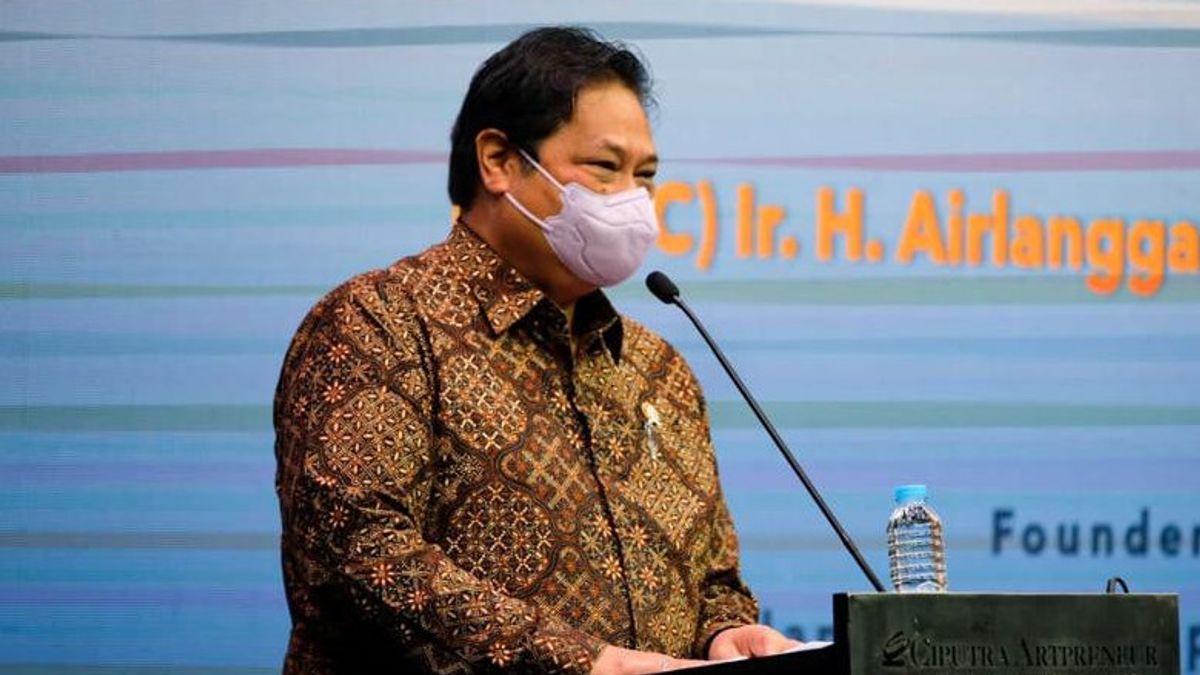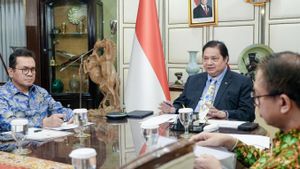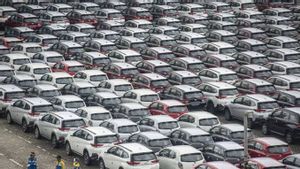JAKARTA - In the second quarter of 2021, the Indonesian economy managed to grow and even recorded the highest growth rate since the sub-prime mortgage crisis, which was 7.07 percent (yoy). Improvements in domestic demand made all business sectors experience positive growth in the second quarter of 2021, including the information and communication sector which grew by 6.87 percent (yoy).
The growth in the information and communication sector was triggered by a shift in people's behavior towards a "low-touch and contactless economy", especially during the pandemic. This situation is an opportunity to accelerate digital transformation in various business sectors, so as to be able to contribute positively to the acceleration of economic recovery.
Indonesia has a demographic bonus that supports the establishment of a sustainable digital ecosystem. The majority of Indonesia's population is Generation Z and Millennials aged 8 - 39 years who have a high level of digital adoption. As many as 37 percent of new consumers of the digital economy have emerged during the COVID-19 pandemic and 93 percent of them will continue to use digital economy products after the COVID-19 pandemic.
"Digital economic activity in Indonesia continues to increase, even 41.9 percent of ASEAN's total digital economy transactions during 2020 came from Indonesia which reached 44 billion US dollars, and in 2025 it is projected to reach 124 billion US dollars. The COVID-19 pandemic condition has also driven developments. The rapid development of education and health technology as a result of implementing online learning and health consultations," said Coordinating Minister for the Economy Airlangga Hartarto at the Founders' Day event, Ciputra Group's 40th Anniversary Commemoration, in Jakarta, Friday, October 22.
Furthermore, Coordinating Minister Airlangga said that the rapid development of digitalization in Indonesia also provides an opportunity to accelerate the Sustainable Development Goals (SDGs) which have become global commitments through 3 enablers, namely: Access to information and services available to every individual, both in rural and urban areas; Improved connectivity between individuals and organizations; and Resource efficiency from increased productivity.
One example of implementing the transformation to support the SDGs that are included in the 2020-2024 RPJMN is the concept of Smart City, Green City, and Sustainable City. Smart City is broadly defined as an urban arrangement or governance that applies technology to increase the benefits and reduce the negative impacts of urbanization that may be caused. Smart City implementation is needed to overcome various problems, such as congestion, garbage accumulation, decreasing water and air quality, to increasing crime rates.
In the event themed "Digital Transformation for Sustainable Development", Coordinating Minister Airlangga explained that the Government through the "100 Smart City" Movement has prepared a master plan and quickwin smart city for 100 Regencies/Cities throughout Indonesia. The focus of Smart City development is emphasized on 6 main pillars, namely Smart Governance, Smart Mobility, Smart Economy, Smart Living, Smart People, and Smart Environment.
"The government is also initiating the preparation of the Digital Transformation Strategy Framework as a guideline in implementing the digitalization process which is directed at 3 strategic sectors, namely Digital Government, Digital Economy and Digital Society, where the implementation of Smart City is one of the indicators in the development of Digital Government and is a global target. sectoral and national," said Coordinating Minister Airlangga.
Coordinating Minister Airlangga also explained that currently there are still challenges that need to be overcome together in order to create a good digital economic ecosystem. Indonesia's Global Innovation Index last year was still ranked 85th out of 131 countries and the 2020 Indonesia Digital Literacy Index was on a "medium" scale. The availability of internet access, which is still dominated by Java, is also a challenge in developing the digital economy ecosystem.
To overcome these challenges, the Government is committed to accelerating the development of digital infrastructure that reaches all regions of Indonesia. This is expected to support the strengthening and expansion of internet access for the people of Indonesia so that digital transformation can be accelerated. "In the future, credit and internet will be the main ingredients," added Coordinating Minister Airlangga.
Through digital transformation, it is projected that additional GDP growth of up to 1 percent per year will be created, which will be able to support the creation of 2.5 million additional jobs, 600 thousand digital talents each year, 50 percent of digitalized MSMEs (about 30 million ready on board), 82.3 percent of internet users, as well as 5 thousand new start-ups.
By 2024, Indonesia is expected to have achieved better rankings at the global level, such as in the United Nations (UN) E-Government Survey; Institute for Management Development (IMD) Digital Competitiveness Index; United Nations Information and Communication Technology (ICT) Development Index; and the World Bank's Ease of Doing Business Index.
"These targets will be achieved if they get support and synergy from various stakeholders. I am sure that with good collaboration between the government and the private sector, the achievement of sustainable development goals will be achieved faster with qualified quality. Moreover, Indonesia will be the first emerging country to hold the G20 presidency next year, so we also need input from the business world to be voiced at the global level," concluded Coordinating Minister Airlangga.
The English, Chinese, Japanese, Arabic, and French versions are automatically generated by the AI. So there may still be inaccuracies in translating, please always see Indonesian as our main language. (system supported by DigitalSiber.id)













